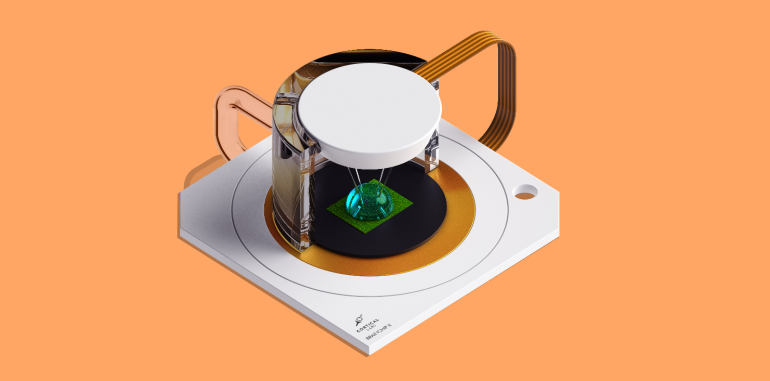In 2030 at the world's largest tech conference, the International Consumer Electronics Show, a crowd gathered to watch a big tech company unveil its new smartphone.
The CEO is on stage to announce the launch of the Nyoro smartphone, which can perform an astounding number of millions of operations, is 1,000 times faster than the 2020 smartphone models, and is 10 times more energy efficient.
A journalist asks, “What technological advances have allowed such a huge improvement in performance?” The CEO replies, “We built a new biological chip using lab-grown human neurons.. These biological chips are better than silicon chips because they can adapt to the user’s pattern and perform huge gains in efficiency.
Another journalist asks, "Aren't there ethical concerns about computers using human brain material?"
Although the previous name and scenario are fiction, as reported by The Conversation, we have to face such questions now.
Researchers found that human neurons were faster at learning than mice neurons (cortical labs).
Fantasy turns into reality
In December 2021, Cortical Labs, based in Melbourne, Australia, grew (brain) neurons and integrated them into a computer chip.
The hybrid chip works because the brain and neurons share a common language: electricity.
In Cortical Labs' Dishbrain system, neurons grow on silicon wafers. These neurons act like wires, connecting different components.
This system can learn Pong, a video game released by Atari in November 1972, faster than traditional AI systems.
Koniku, another startup that makes computers from lab-grown neurons, believes its technology will revolutionize many industries, including agriculture, healthcare, military technology and airport security.
There are also many other types of organic computers in the early stages of development.
Cells in the Dish Brain system learned the game of "Pong" (cortical labs).
The magic of the human brain
Although silicon computers changed the world, most animals' brains still outperformed them.
For example, a cat's brain has more than a thousand times the data storage capacity of a regular iPad, and a cat can use this information a million times faster.
As for the human brain, with its trillions of neural connections, it is capable of performing 15 quintillion operations per second (a quintillion is one to the right of which is 18 zeros), and this can only be matched today by “super” computers that use huge amounts of energy, and it will take It commands 34 coal-fired 500 megawatt-hours plants to store the same amount of data as a single human brain in data storage centers.
In the Dish Brain system, the researchers found that human neurons were faster at learning than neurons from mice.
Companies don't need brain tissue samples from donors, but can simply grow the neurons they need in the lab from normal skin cells. Using stem cell techniques, scientists can engineer cells from blood samples or skin biopsies to become neurons.
Henrietta Lacks cells are still used in applications that generate huge profits for pharmaceutical companies (Getty Images)
Ethical questions
The question now is: Can Apple and Google create super-fast computers using the neurons of today's best and brightest scientists?
Opponents say there is a scandal related to the cells of an African-American woman named Henrietta Lacks, whose cells have been widely used in medical and commercial research without her knowledge and consent, and her cells are still used in applications that generate huge profits for pharmaceutical companies, and have not Her family gets no compensation.
While proponents of this technology argue that humans' use of animals has continued for thousands of years, even though these experiences are often negative for animals.
In fact, we're in the early stages of neural computing, and we have time to think about these issues, and we need to do that before products like Neuro move from science fiction to store shelves.

